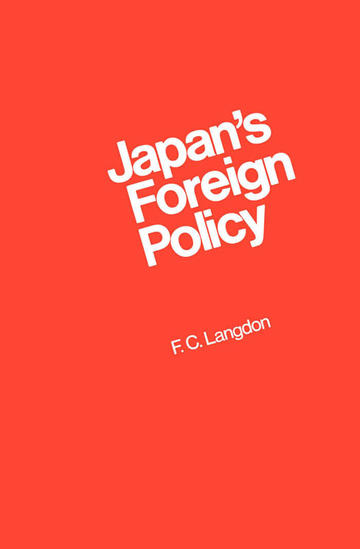In 1960 the Japan-United States security treaty was rewritten amid controversy and rancor. In the years since, Japan has astonished the world with her comeback from the status of defeated nation to a major industrial nation. This book is a detailed study of Japan's foreign policy which guided the nation in its resurgence. Five years in the preparation, the book examines the three main pillars of Japanese foreign policy: national prosperity, national security and recognition of Japan as an international power. The author's detailed knowledge of Japanese domestic politics provides the essential background for an understanding of the nation's pursuit of its foreign objectives.
Frank C. Langdon was a lieutenant commander in the United States Navy during the Second World War. He served as a communications officer in the Pacific area and in 1946 and 1947 remained in Japan as an economic advisor on the staff of the Supreme Commander for the Allied Forces in Tokyo. In the course of researching this book he returned three times to Japan to interview statesmen, politicians, scholars and businessmen. Dr. Langdon is fluent in Japanese. A native of Illinois, Dr. Langdon is professor of political science at the University of British Columbia. He holds a BA in economics, an MA in Asian studies (both from Harvard) and his PhD is from the University of California (Berkeley).



